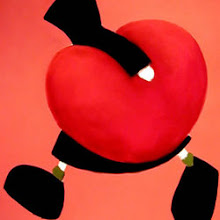
I heard Polley and her dad on NPR's Fresh Air, and I knew I wanted to catch her doc. It's about her own life and a story that began as a family joke and turned out to be a secret Polley's mother took to the grave. I promise I'm not giving too much away when I explain that Polley directs her family members and friends of her mother to tell the story of "her mum," who died when Polley was about 11, I think. Each tells the truth but different stories surface that tell a surprising story of love, marriage and infidelity. It turns out, Polley's dad was not her biological father.
How does Polley react? How does her father react? How does the man with whom her mother had an affair react? How do all of them come to terms with the truth, and whose truth is it?
Stories We Tell feels very personal, which of course, it is, and oftentimes, you can hear Polley offscreen reacting to what's being said by the brother, friend or father she's interviewing.
The emotional ties that fill our tummies with butterflies are not what drew me to see What Maisie Knew. Of course, it was Skarsgard, and Julianne Moore, whom I love. But really, it was the incredibly sexy Skarsgard and my desire to see him in roles that truly allow him to show off his acting skills. And he does very well in this film, as do all the actors, especially the very young Onata Aprile, who appears in virtually every scene with her gigantic haunting doe eyes.
Maisie is a 6-year-old daughter of rock star and art dealer parents who hate each other and fight constantly and loudly. With no concern for what Maisie hears or sees, these self-absorbed adults create what years of therapy will need to heal in Maisie.
Both of these films made me think about marriage and family and how just about anyone can be a husband, a father, a wife or a mother. Although it is the most difficult and important roles we play in life, we get absolutely no training for it, and rarely do we really see the lifelong impacts of our actions. Maisie's parents don't hit her, they don't force her to live a life homeless or hungry, and they don't tell her she's worthless. Still, they are horrible parents, using people to get what they want and taking no responsibility for their own child, who I believe they both love but not as much as they love themselves.
In Stories We Tell, the parents seem to be good people who love their families. But how far can you go in getting what you want and what you rightfully deserve - in this case, true love - without impacting the lives of those around you?
It can't be helped. The older we get, the more our decisions impact the lives of people we love.


No comments:
Post a Comment